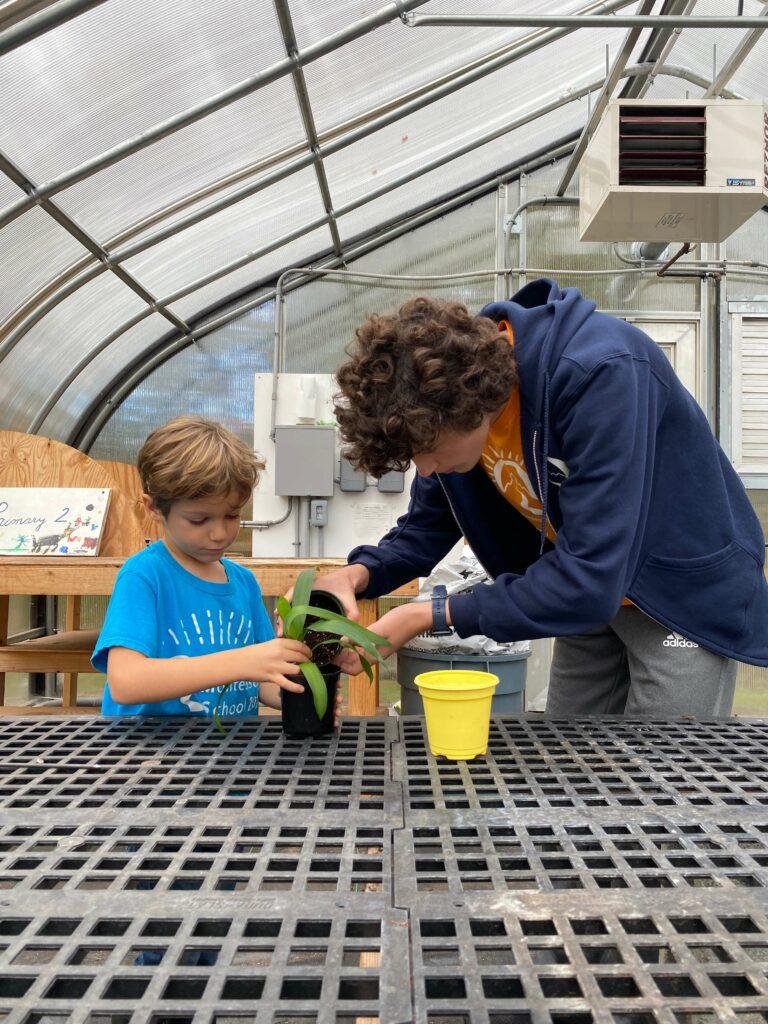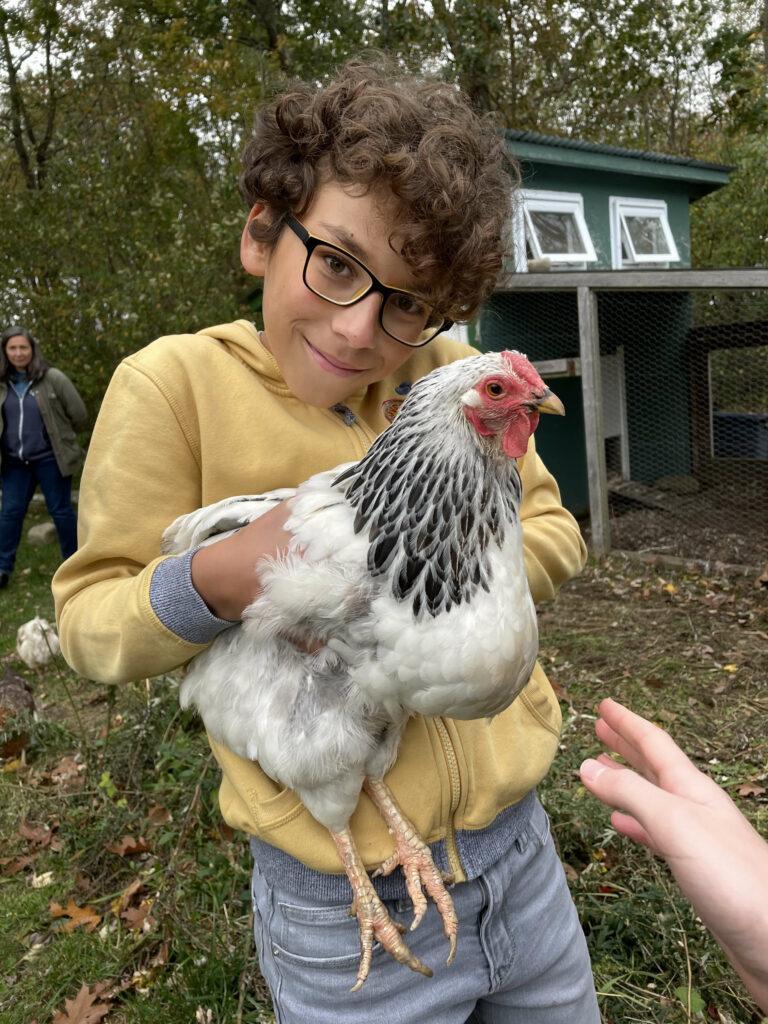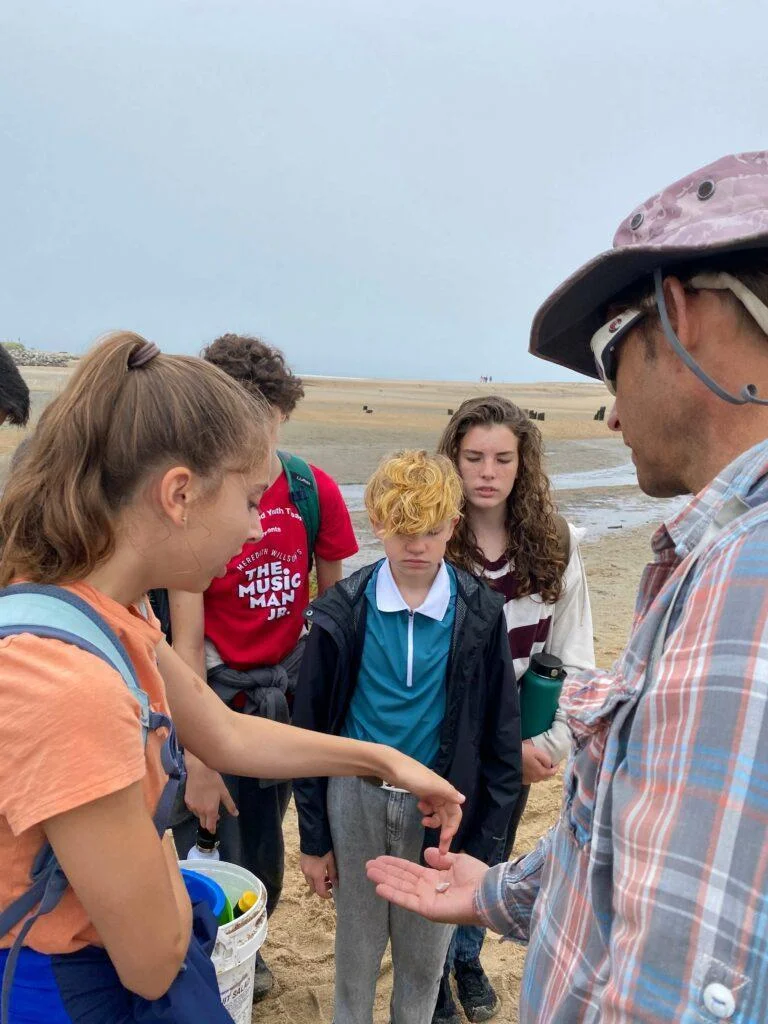Discover Our Middle School Community
Quest's Middle School provides an academically-challenging learning community where students navigate the early adolescent years in a nurturing, respectful, and inspiring educational setting. Students benefit from an outstanding Montessori tradition, an appropriately challenging academic course load, rich and kind social environment, complete with curriculum-based outings, and guest speakers.
Science
The goal of the Middle School science curriculum is to teach students to learn the way scientists learn. They explore interesting questions and challenges, reading about what other scientists have discovered, investigating, experimenting, gathering evidence, and forming explanations. Middle School students learn to collaborate with others to find answers and to share their learning in a variety of ways. In the process, they come to see science in a whole new, exciting way that motivates them throughout their educational experiences and beyond.
Students learn within the framework of Project Based Inquiry Science or PBIS. In project-based inquiry learning, students investigate scientific content and learn science practices in the context of attempting to address challenges in or answer questions about the world around them.
Early activities introducing students to a challenge help them to generate issues that need to be investigated, making inquiry a student-driven endeavor. Students investigate as scientists would, through observations, designing and running experiments, designing, building, and running models, reading written material, and so on, as appropriate. Throughout each project, students might make use of technology and computer tools that support their efforts in observation, experimentation, modeling, analysis, and reflection. The teacher supports and guides the student inquiries by framing the guiding challenge or question, presenting crucial lessons, managing the sequencing of activities, and eliciting and steering discussion and collaboration among the students. At the completion of a project, students publicly exhibit what they have learned along with their solutions to the specific challenge. Personal reflection to help students learn from the experience is embedded in student activities, as are opportunities for assessment.
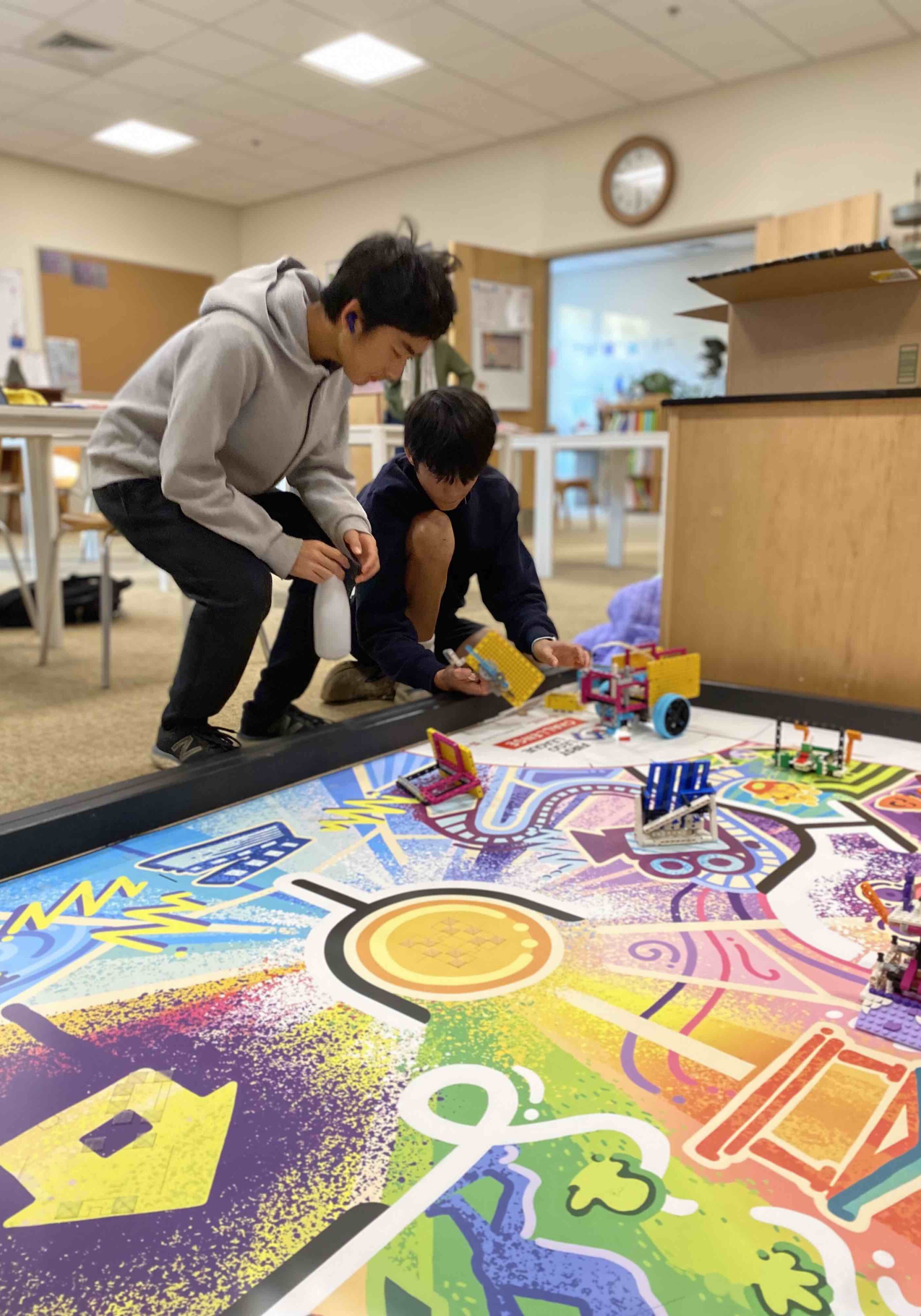
Math
The goal of the middle school math curriculum is to develop sound critical thinking and problem solving skills while preparing students to transition into a more traditional high school level math program. Students are presented with lessons appropriate with their ability beginning with pre-algebra and covering topics up through and beyond the Algebra 1 curriculum. Middle school math is designed to connect math skills with the outside world while being challenging and engaging.
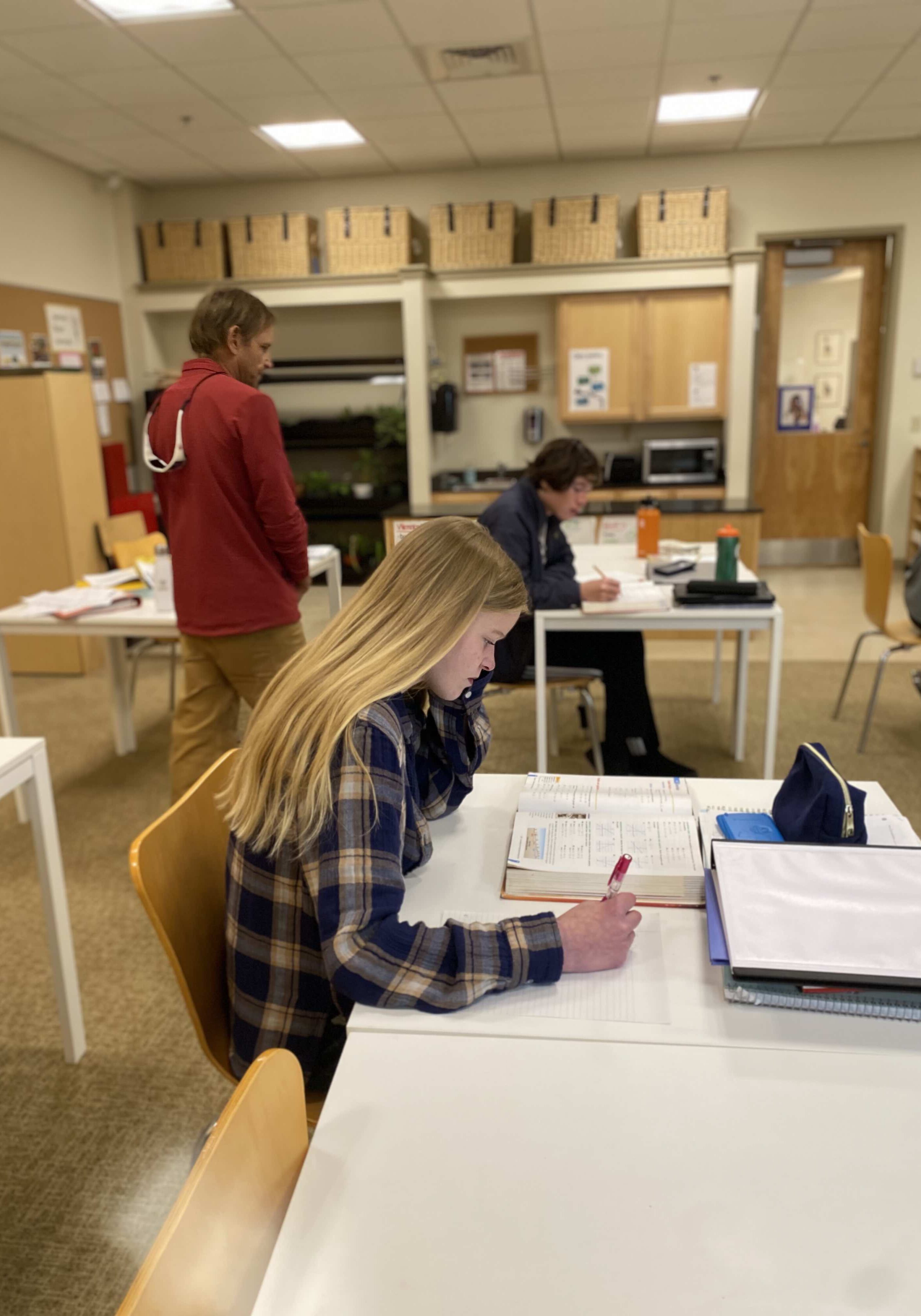
Humanities
Humanities is about investigating what makes us, well, human. How have different groups of people created communities throughout time? How have they expressed themselves through literature, music, and art? And what common threads can we draw between ourselves and people long ago?
Students engage with the material in many ways. These include individual and small-group research and projects, whole-group lessons, essay writing, oral presentations, seminars, going outs, reading of primary and secondary source material, and creation of models, charts and timelines. Literacy, research, and study skills are interwoven with the humanities work.
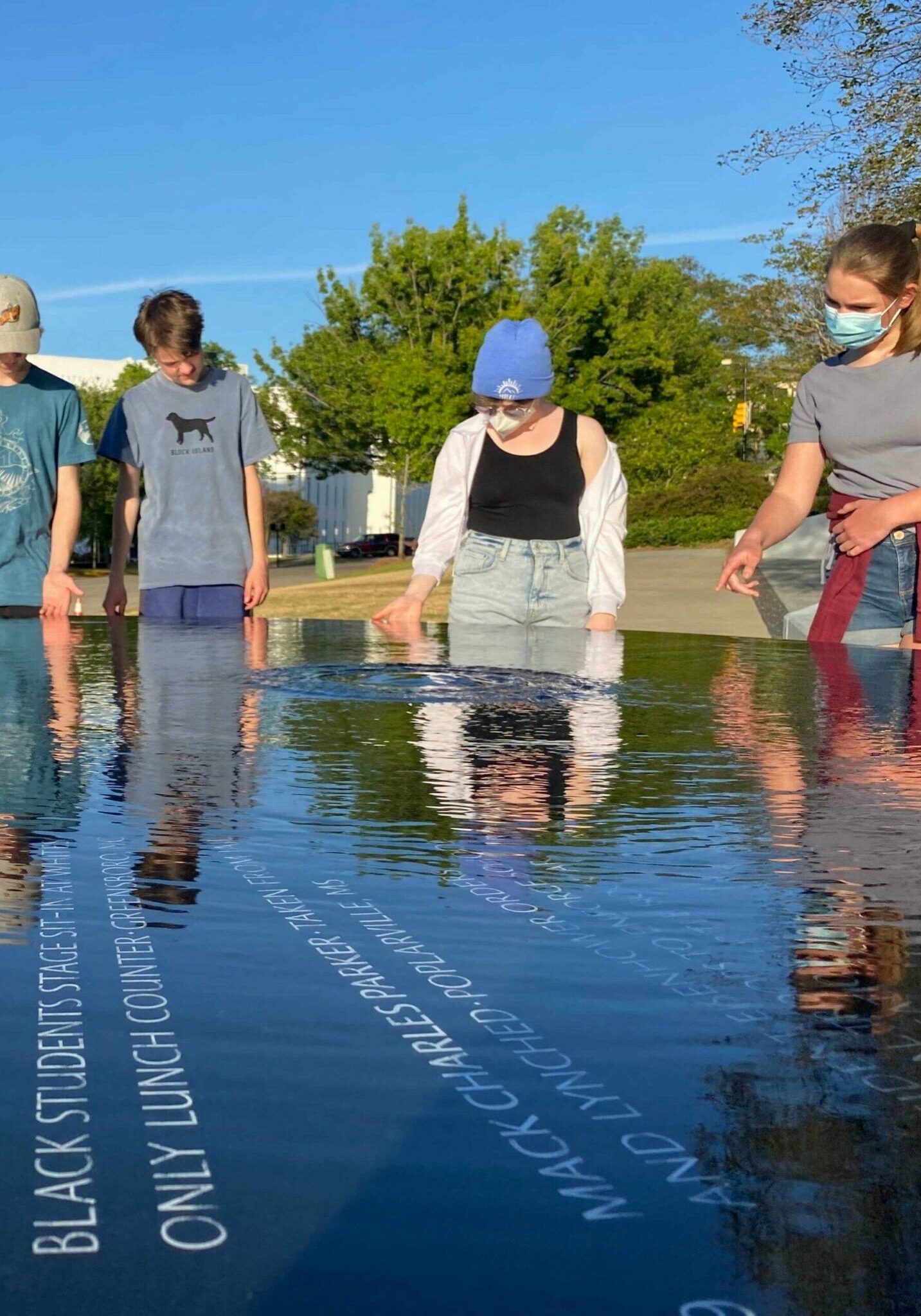
English & Language Arts
English and Language Arts are entwined with all aspects of the Middle School program and are also studied as distinct curricular areas. The core of our program is the Writers-Readers Workshop. Significant, regular time is dedicated each week to meaningful writing and self-selected reading. The workshop approach allows students to choose topics and books that they are invested in. Through mini-lessons, sustained work time, conferences, and discussions, students learn specific strategies to become better readers and writers.
Reading selections will often be what students choose for themselves but at times will also include book groups and whole-class assignments that relate to topics or themes we are studying. Similarly, writing genre or topic will often be individually selected, but students will have plenty of practice with various types of essays, poetry, memoir and short fiction.
Finally, Seminar is a valuable tool for language development and critical thinking. In Seminar, students read and analyze a piece of short fiction, nonfiction, or sections of longer works. They then prepare factual, interpretive and evaluative questions based on the material. The interpretive questions become the basis for a meaningful group conversation that deepens and enriches understanding of the material and strengthens critical thinking and discourse skills.
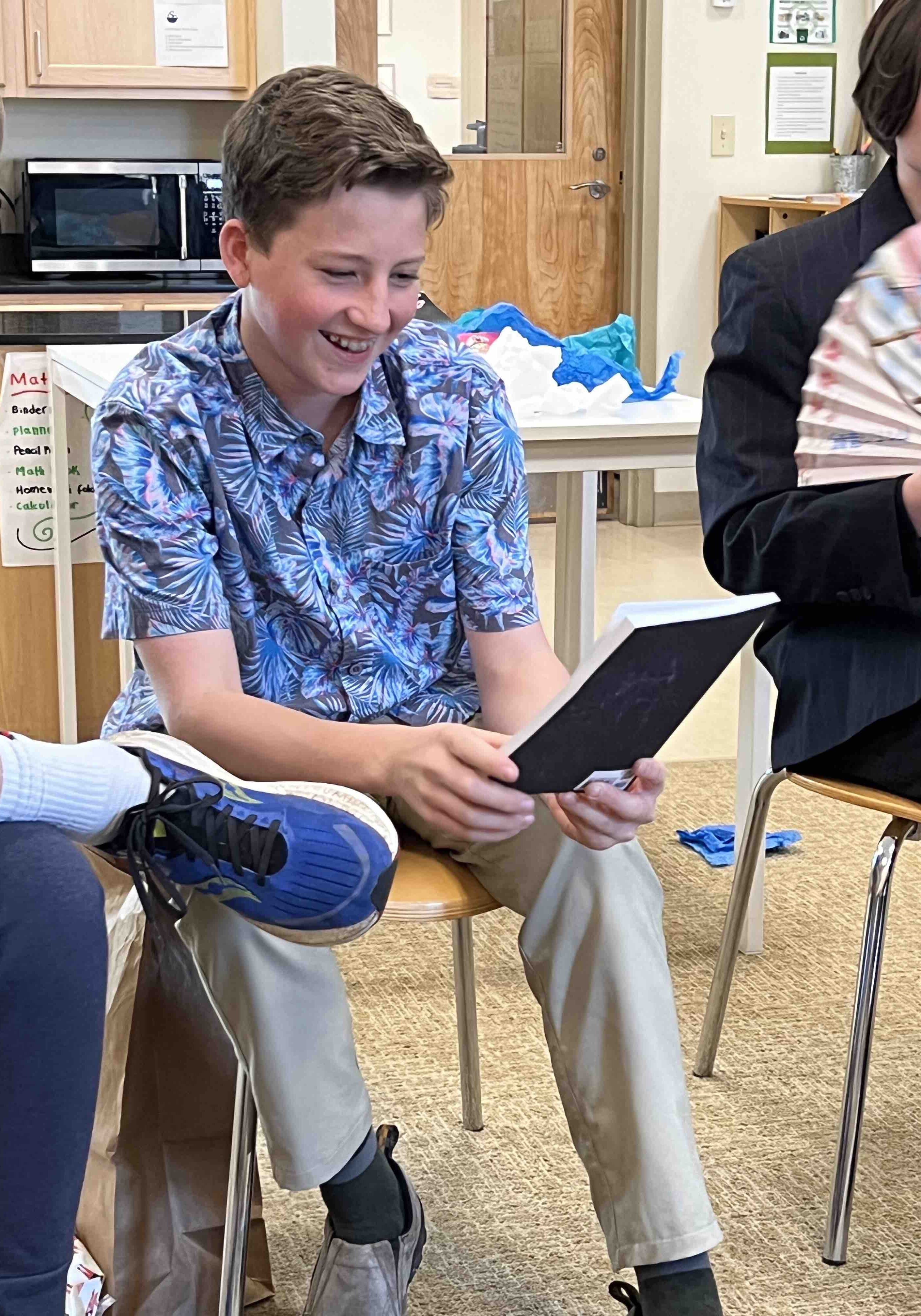
At Quest, I have had the privilege of understanding how my strengths play into the work I do at school, and I have learned how to identify these strengths and appreciate them in others, and see how all of our strengths come together to form a strong community.

